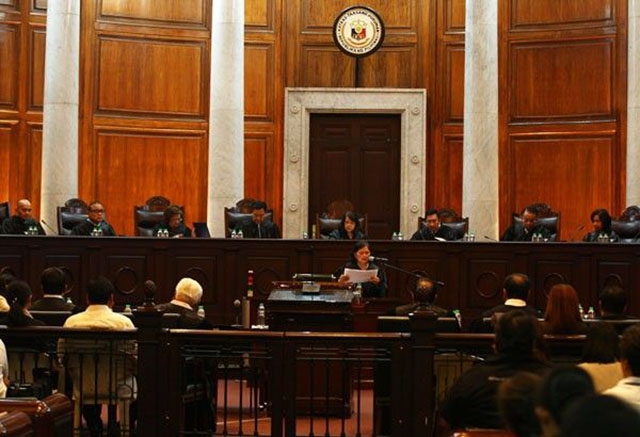Trial court's findings entitled to great weight; exceptions
When the trial court's findings have been affirmed by the appellate court, said
findings are generally conclusive and binding upon the Supreme Court.[1]It is
only in exceptional circumstances,
such as when the trial court overlooked material and relevant matters, that the
Supreme Court recalibrated and evaluated the factual findings of the court
below.[2] The following was held in Co Kiat v. Court of Appeals.[3] It is a well-settled doctrine in this jurisdiction, that
factual findings of the trial court are entitled to great weight and
authority (Macua vs. Intermediate Appellate Court, 155 SCRA 29) and that the
jurisdiction of the Supreme Court in cases brought to it from the Court of
Appeals, is limited to reviewing and revising the errors of law imputed to
it, its findings of facts being conclusive (Chan vs. Court of Appeals, 33
SCRA 737).
It is a well-settled doctrine in this jurisdiction, that
factual findings of the trial court are entitled to great weight and
authority (Macua vs. Intermediate Appellate Court, 155 SCRA 29) and that the
jurisdiction of the Supreme Court in cases brought to it from the Court of
Appeals, is limited to reviewing and revising the errors of law imputed to
it, its findings of facts being conclusive (Chan vs. Court of Appeals, 33
SCRA 737).
[1]Cruz v. People, 586 Phil. 89, 102 (2008).
[2]Ringor v. People, supra note 15, at 633.
[3]G.R. No. L-48700, July 2, 1990.
[4]Co Kiat v. Court of Appeals, supra, at 11.
 It is a well-settled doctrine in this jurisdiction, that
factual findings of the trial court are entitled to great weight and
authority (Macua vs. Intermediate Appellate Court, 155 SCRA 29) and that the
jurisdiction of the Supreme Court in cases brought to it from the Court of
Appeals, is limited to reviewing and revising the errors of law imputed to
it, its findings of facts being conclusive (Chan vs. Court of Appeals, 33
SCRA 737).
It is a well-settled doctrine in this jurisdiction, that
factual findings of the trial court are entitled to great weight and
authority (Macua vs. Intermediate Appellate Court, 155 SCRA 29) and that the
jurisdiction of the Supreme Court in cases brought to it from the Court of
Appeals, is limited to reviewing and revising the errors of law imputed to
it, its findings of facts being conclusive (Chan vs. Court of Appeals, 33
SCRA 737).
In a petition for review of decisions of the Court of Appeals, the
jurisdiction of this Court is confined to
reviewing questions of law,
unless the factual findings are totally bereft of support in the
records or are so glaringly erroneous as to constitute a serious abuse
of discretion (Canete, et al. vs. Court of Appeals, 171 SCRA 13).
Except in criminal cases in which the penalty imposed isreclusion
perpetuaor higher, appeals to the Supreme Court are not a matter of right
but of sound judicial discretion and are allowed only on questions of law
and only when there are special and important reasons, which we do not
find in this case (Balde vs. Court of Appeals, 150 SCRA 365).[4]
[1]Cruz v. People, 586 Phil. 89, 102 (2008).
[2]Ringor v. People, supra note 15, at 633.
[3]G.R. No. L-48700, July 2, 1990.
[4]Co Kiat v. Court of Appeals, supra, at 11.
